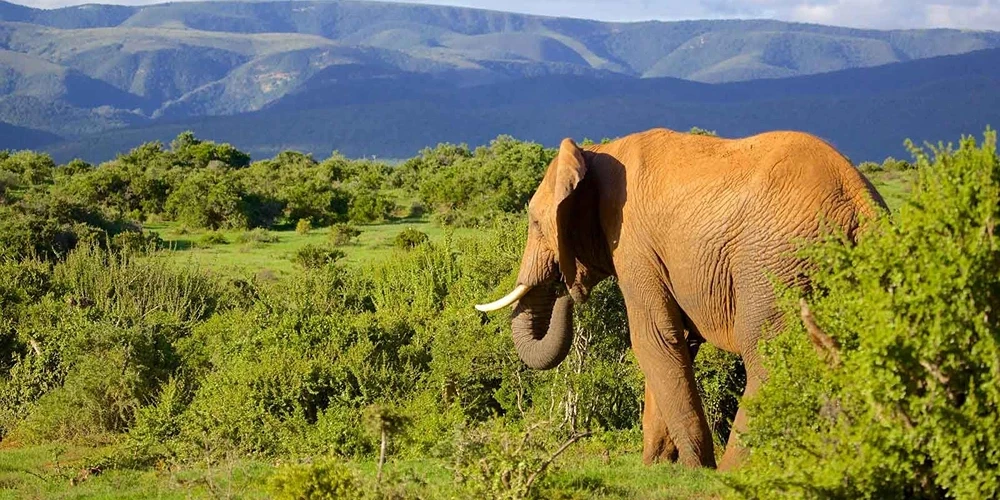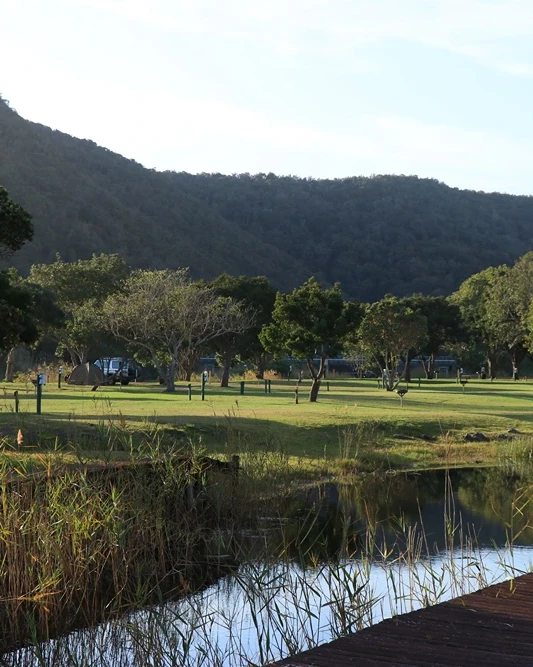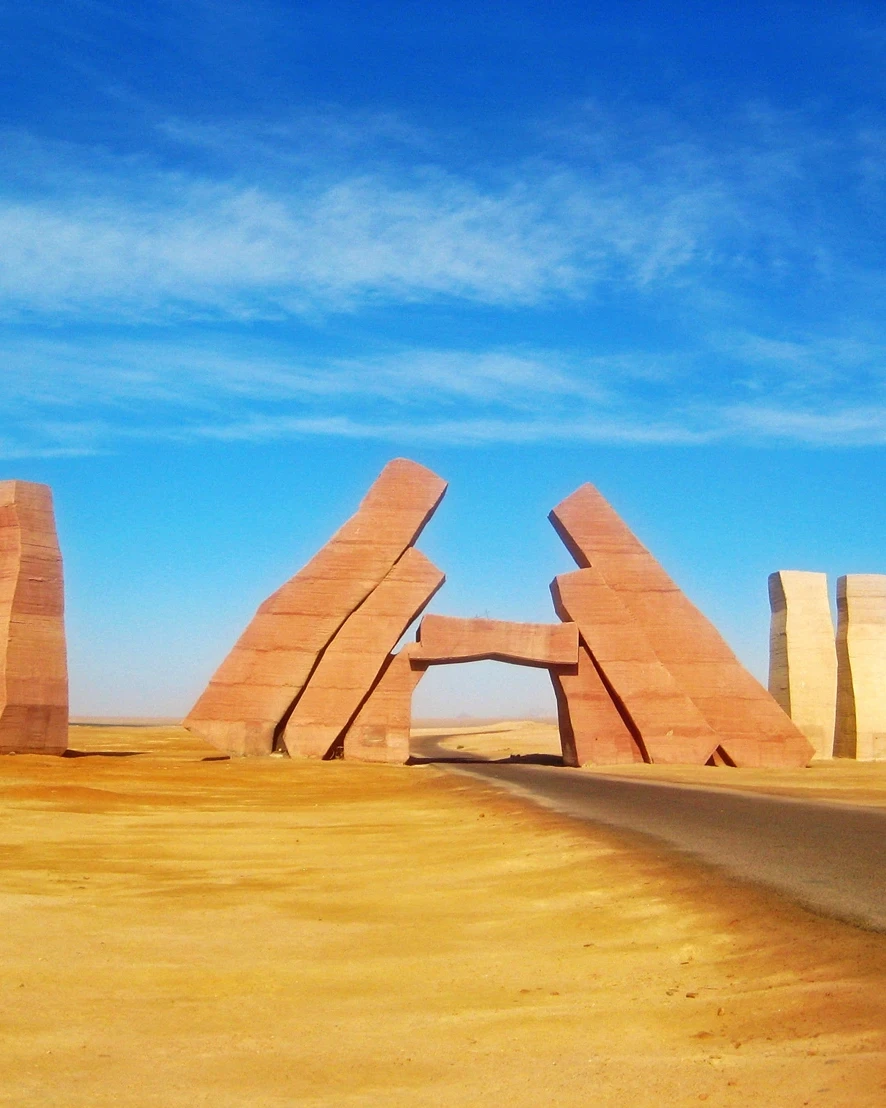Have you ever wondered where you can experience the majesty of African elephants without the crowds of more famous parks? Nestled in the Sundays River region of South Africa’s Eastern Cape, Addo Elephant National Park offers just that—a peaceful sanctuary teeming with wildlife. Originating in 1931 to save the last 11 elephants of the area, it has since transformed into a sprawling expanse from the Zuurberg Mountains to the Alexandria dunes. Discover why this malaria-free haven, just 70 km from Nelson Mandela Bay, is Africa’s hidden gem for nature enthusiasts and wildlife lovers alike.
Overview of Addo Elephant National Park
Addo Elephant National Park is located in the Sundays River region of the Eastern Cape, South Africa. Established in 1931, the park was initially created to protect the last 11 elephants in the area. Since then, it has expanded significantly and now ranks as South Africa’s third-largest national park, covering a diverse range of landscapes from the Zuurberg Mountains to the coastal dunes of Alexandria.
The park is a notable malaria-free zone, making it a safer option for visitors concerned about malaria exposure. Situated approximately 70 kilometers from Nelson Mandela Bay (Port Elizabeth), Addo Elephant National Park offers convenient access for travelers coming from the city. The park’s diverse habitats support a wide array of wildlife, making it a prime destination for nature enthusiasts.
Key features of Addo Elephant National Park include its substantial elephant population, scenic landscapes, and various ecosystems. The park’s conservation efforts have not only protected elephants but also numerous other species, contributing to its rich biodiversity.
- Established in 1931 to protect 11 elephants
- Located 70 km from Nelson Mandela Bay
- South Africa’s third-largest national park
- Malaria-free zone
- Diverse habitats from mountains to coastal dunes
Wildlife and Attractions in Addo Elephant National Park
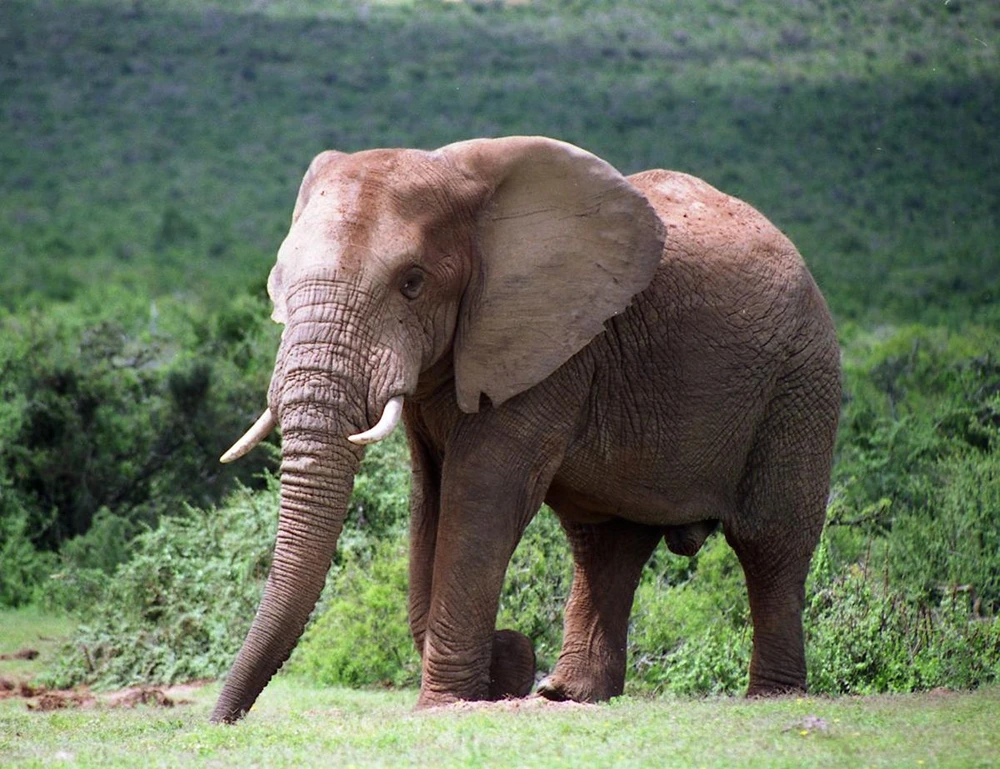
Addo Elephant National Park is a sanctuary for the Big Five: elephants, lions, leopards, rhinos, and buffaloes. Renowned for its thriving African elephant population, the park provides a rich wildlife experience. Visitors can expect to see not just elephants, but also a variety of other animals, making it a prime game viewing destination.
The park’s diverse habitats create an excellent environment for wildlife spotting. Key areas include multiple watering holes and the Main Camp’s underground hide. These spots are frequented by animals, particularly during the dry season from May to September, when water sources become more critical. This period is ideal for game viewing as animals congregate around these essential water points.
To enhance your experience, consider visiting some of the park’s major attractions. These include scenic landscapes, ecosystems, and specific locations known for wildlife activity. The table below highlights some of the top attractions within Addo Elephant National Park.
| Attraction | Description |
| Watering Holes | Prime spots for observing elephants and other animals, especially during the dry season. |
| Main Camp’s Underground Hide | A unique vantage point to see wildlife up close and personal, particularly elephants. |
| Zuurberg Mountains | Offers stunning landscapes and diverse flora and fauna. |
| Coastal Dunes of Alexandria | Provides a different ecosystem and the chance to see coastal wildlife. |
| Spekboom Hide | Another excellent spot for quiet and unobtrusive wildlife viewing. |
| Gwarrie Pan | A lesser-known area that is excellent for observing animals in a more secluded setting. |
Whether you’re keen on spotting the Big Five or simply enjoying the park’s natural beauty, Addo Elephant National Park offers a range of attractions that cater to all wildlife enthusiasts.
Accommodation Options at Addo Elephant National Park
Addo Elephant National Park offers a wide range of accommodation options to suit diverse preferences and budgets. The park’s main hub, Addo Main Camp, provides a variety of lodging types, including chalets, cottages, forest cabins, rondavels, and campsites. This central area not only offers accommodation but also serves as the base for various activities and facilities, making it a convenient choice for visitors.
For those seeking a unique experience, the Spekboom Tented Camp is an excellent option. This camp features private safari tents that lack electricity but include shared ablutions, a small shared kitchen, and private braai areas. The rustic setup allows visitors to immerse themselves in the natural environment while still enjoying essential amenities. The lack of electricity encourages a more intimate connection with the surroundings, perfect for those looking to unplug and unwind.
Luxury seekers are not left out either. The park boasts several luxury lodges and boutique hotels that offer high-end amenities and exceptional service. These accommodations often include gourmet dining options, spa services, and guided tours, providing a more lavish and comfortable stay. Whether you prefer the simplicity of a self-catering tent or the opulence of a luxury lodge, Addo Elephant National Park has something for everyone.
- Chalets at Addo Main Camp
- Cottages at Addo Main Camp
- Forest cabins at Addo Main Camp
- Rondavels at Addo Main Camp
- Campsites at Addo Main Camp
- Private safari tents at Spekboom Tented Camp
- Luxury lodges and boutique hotels
Visitor Information: Entry Fees, Operating Hours, and Best Times to Visit
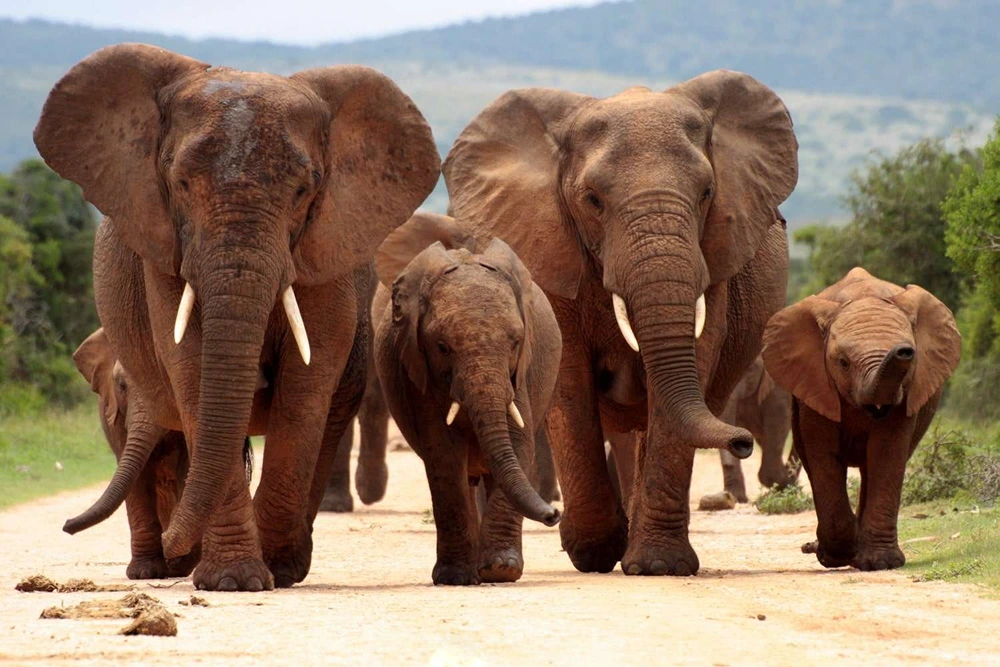
Entry fees to Addo Elephant National Park vary depending on residency status and the age of visitors. The entrance fee, known as the Conservation Fee, supports the park’s ongoing conservation efforts. For the most current rates and any seasonal changes, it is advisable to check the official park website before planning your trip. Typically, adults pay a higher fee than children, and there are discounted rates for South African citizens.
Operating hours at Addo Elephant National Park also vary throughout the year. During the summer months, gates usually open earlier and close later to accommodate the longer daylight hours. In winter, the operating hours are slightly reduced. Ensuring you know the current operating times is crucial for planning your daily activities within the park. It’s always a good idea to arrive early to maximize your time for wildlife viewing and other activities.
The best time to visit Addo Elephant National Park is during the dry season, which runs from May to September. During these months, water sources are scarce, making it easier to spot animals congregating around watering holes. The cooler weather also makes outdoor activities more pleasant. For those aiming to see the Big Five, this period offers the highest chances due to the predictable animal movements around water sources.
- Check entry fees and operating hours on the official park website
- Entrance fee supports conservation efforts
- Best time to visit is during the dry season (May to September)
- Arrive early to maximize wildlife viewing
- Discounted rates available for South African citizens
Guided Tours and Self-Drive Options in Addo Elephant National Park
Addo Elephant National Park offers both guided tours and self-drive options, catering to different preferences and levels of experience. Guided tours are highly recommended for those who want an in-depth understanding of the park’s ecosystems and wildlife. Experienced guides provide valuable insights and increase the likelihood of spotting elusive animals. Reviews often praise the knowledgeable guides and well-maintained vehicles, highlighting the overall quality of these tours.
Self-drive options offer flexibility and the freedom to explore at your own pace. This option is ideal for visitors who prefer a more private experience. The park’s roads are well-marked and maintained, making it easy to navigate through various habitats. However, it is crucial to adhere to park rules, such as speed limits and designated viewing areas, to ensure both safety and the best wildlife encounters.
To make the most of your visit, consider the following tips for a successful safari experience. Whether you choose a guided tour or a self-drive, being prepared enhances your overall enjoyment and increases your chances of memorable wildlife sightings.
- Guided Tours Benefits:
- Expert knowledge and insights from professional guides.
- Higher chances of spotting elusive animals.
- Comfortable and well-maintained vehicles.
- Educational experience about the park’s ecosystems and wildlife.
- Safety and convenience of having a guide.
- Group tours can be more cost-effective.
- Self-Drive Benefits:
- Flexibility to explore at your own pace.
- Private and personalized experience.
- Ability to spend more time at favorite spots.
- Opportunity to create your own itinerary.
- Potential cost savings if traveling with family or a group.
- Enhanced sense of adventure and discovery.
Practical Tips and Recommendations for Visiting Addo Elephant National Park
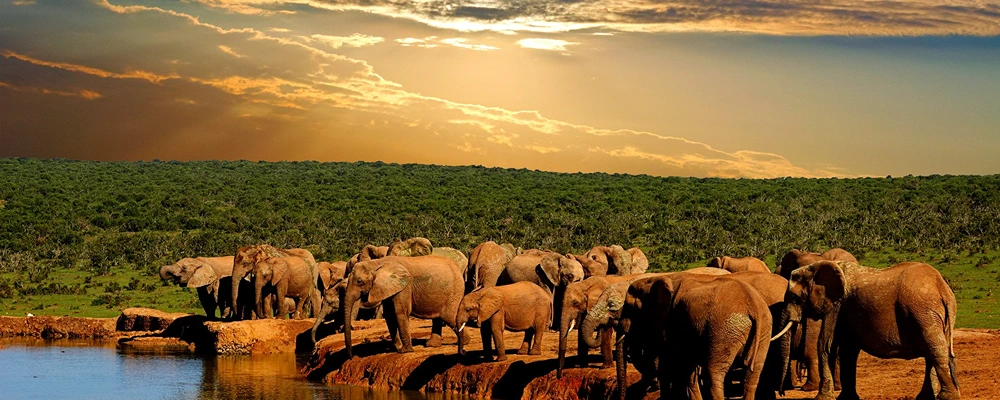
Bringing binoculars is essential for a successful visit to Addo Elephant National Park. Binoculars allow you to spot wildlife from a distance, making it easier to observe animals without disturbing them. They are particularly useful for birdwatching, as the park is home to a wide variety of bird species. In addition to binoculars, wearing neutral-colored clothing helps you blend into the natural environment, reducing the chance of startling wildlife.
Booking accommodations and tours in advance is highly recommended. The park’s popularity means that lodgings and guided tours can fill up quickly, especially during peak seasons. Reserving your spot ahead of time ensures that you have a place to stay and access to expert-guided experiences, which can significantly enhance your visit. High-quality images and maps can also enrich your experience by helping you navigate the park and identify key points of interest.
Following the speed limit and other park rules is crucial for a safe and enjoyable safari. Adhering to these guidelines not only protects you and other visitors but also safeguards the wildlife. Driving slowly increases your chances of spotting animals and reduces the risk of accidents. Staying on designated roads and respecting wildlife viewing etiquette contribute to a more rewarding and responsible visit.
- Bring binoculars for better wildlife observation
- Wear neutral-colored clothing to blend into the environment
- Book accommodations and tours in advance
- Use high-quality images and maps for navigation
- Follow the speed limit and other park rules
- Stay on designated roads
- Respect wildlife viewing etiquette
Final Words
Addo Elephant National Park offers a unique experience with its rich history and diverse wildlife. Whether exploring the Big Five, staying at varied accommodations, or taking guided tours, this park promises memorable encounters.
Visitor tips, entry fee details, and practical advice ensure a smooth and enjoyable trip. Embrace the natural beauty and plan your visit to Addo Elephant National Park, where unforgettable adventures await.
FAQ
Where is Addo Elephant National Park located?
In which province is the Addo Elephant National Park found?
What is special about Addo Elephant National Park?
Is Addo Elephant Park worth it?
How many lions are there in Addo Elephant Park?
Does Addo Elephant Park have the Big 5?
What are the accommodation options in Addo Elephant Park?
What activities can you do in Addo Elephant Park?
How much are tickets for Addo Elephant National Park?
What are the biomes in Addo Elephant National Park?
Can you do a day visit to Addo Elephant National Park?
Top Attractions
Think you’ve seen all that South Africa's nature has to…
Ever wondered where you can find rivers, beaches, forests,…
Are you ready to uncover the secrets of one of Egypt’s most…


